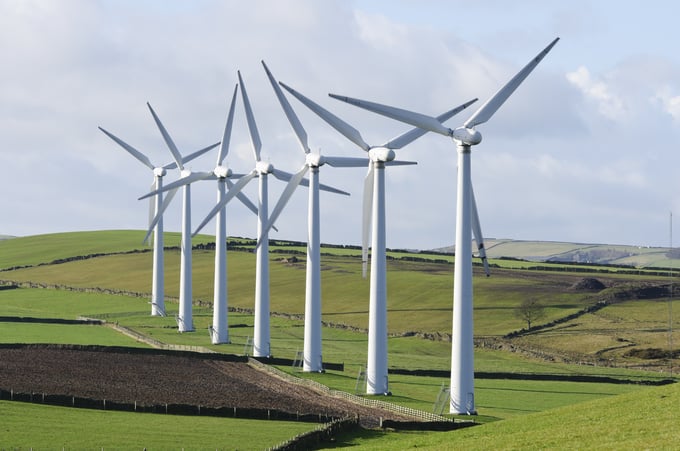Since the energy crisis began, bemused energy customers have been asking different versions of the same question, on social media and in the press. “If I’m on a 100% renewable energy tariff, why have my energy bills shot up? Have the sun and wind put their prices up?”
For business and domestic energy customers alike, the truth about “renewable” supplier tariffs is far from simple. It is still legal for a retailer to market their energy as “100% green” or “renewable” even if they have no contracts with renewable generators.
The loophole that makes all this legal is the acceptance of Renewable Energy Guarantees of Origin, or REGOs. These are issued to generators by regulator Ofgem to prove that the energy produced truly is renewable (one REGO per MWh of green energy). The problem is that they can be sold separately from the energy itself. This allows retailers to buy all their energy from fossil fuel sources and then cheaply turn it “green” through the purchase of enough REGOs to cover consumption through green tariffs. This means that many ostensibly green tariffs are just as vulnerable to soaring wholesale gas and oil prices as a regular tariff. But now there is an additional factor to push the bills up: the REGOs themselves are becoming expensive too.
In August 2021, the average REGO price offered by suppliers was 60p, and even that represented an increase on previous years. But by June 2022 it was £7.50. That is an increase of over 1000% in less than a year.
Why REGO prices are rising
There are various reasons for the soaring price of REGOs. One of them is a positive development: growing demand for renewable electricity. Suppliers have responded to this increase in customer demand and now over half of new electricity tariffs are badged as “green”.
Corporate power purchase agreements (CPPAs) are another big factor. Businesses sign a contract directly with a renewable generator, helping to reduce corporate emissions and protect themselves from energy price volatility. But this doesn’t mean that the energy supplied to the business is coming from the renewable generator 24/7. The supplier managing the CPPA almost always has to make up for times where generation doesn’t match consumption by filling in the gaps with grid energy. Then it uses REGOs to label the whole CPPA as “100% renewable”. (For more information on how CPPAs work, download our free guide.) So the increasing popularity of CPPAs is also driving up demand for REGOs.
Many other factors can affect the price of REGOs, such as variability in renewable output. But the overall reality is that REGOs are no longer a cheap option.
A changing landscape
High-volume energy users are rightly switching to renewables as a way to protect themselves from the rising and unpredictable prices of fossil fuel energy sources. But now the REGOs themselves have become a growing and increasingly unpredictable portion of a company’s energy costs. And they are no longer fulfilling their original purpose: to support the installation of new, additional renewable energy capacity.
The UK government is becoming aware that REGOs are no longer fit for purpose, and it has been asking questions about how to reform our energy market. Meanwhile, the EU has also come to the conclusion that its own Guarantee of Origin scheme is not providing sufficient incentives to consume green energy. So the future of REGOs and their EU equivalent is in doubt as governments work towards creating a more transparent energy market.
In the meantime, businesses with significant energy consumption need to protect themselves from the soaring price of REGOs and other pitfalls of an increasingly unpredictable energy market. ENTRNCE have created a free guide explaining how energy-intensive businesses can control costs and improve their energy security while also reducing carbon emissions.
Download our free guide and develop an energy strategy perfectly tailored to the needs of your business.



